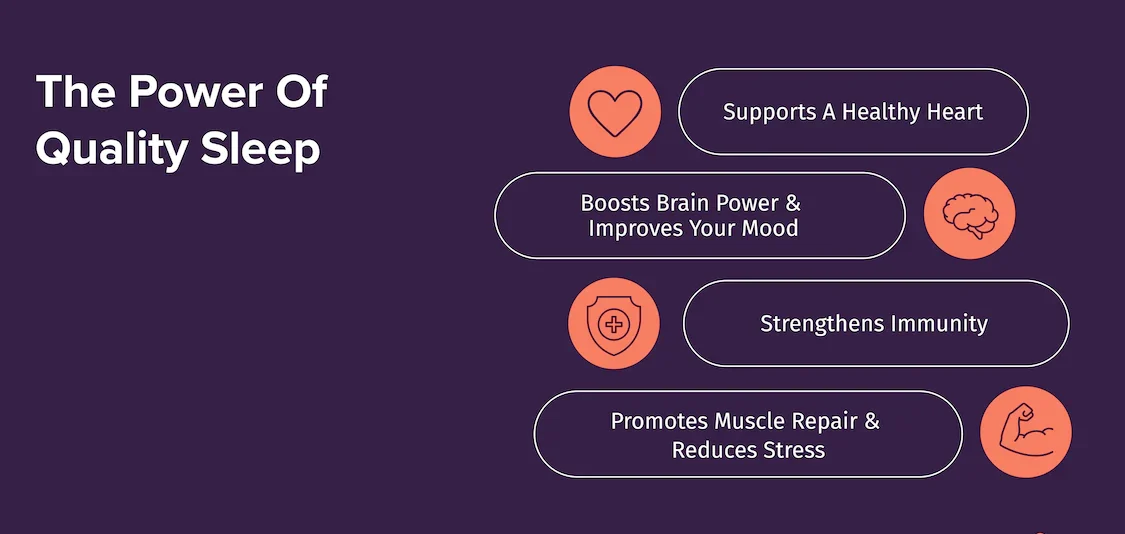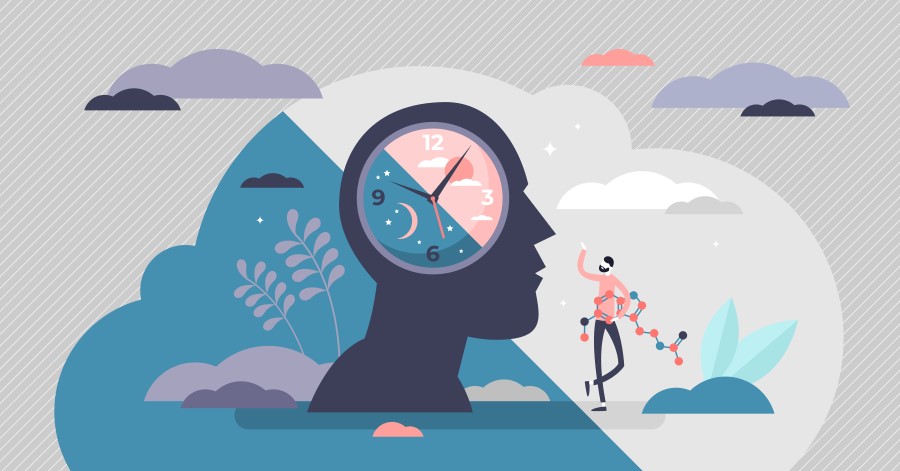Sleep Quality: Mastering Essential Vitamin Intake

Contents
Are you struggling to get a good night’s sleep? It might be time to take a closer look at your vitamin intake. Surprisingly, vitamin deficiencies can play a significant role in your sleep quality. In this article, we will explore how certain vitamins are essential for maintaining a healthy sleep routine and what happens when those vitamins are lacking.
Common Vitamin Deficiencies That Affect Sleep
Vitamin deficiencies can have a profound impact on your sleep patterns. When the body lacks vitamins like vitamin D, vitamin B12, and magnesium, it can lead to sleep disruptions, insomnia, and restless nights. These vitamins are responsible for regulating neurotransmitters in the brain that control sleep and wake cycles. Without adequate levels, you may find it difficult to fall asleep, stay asleep, or achieve quality sleep.

Vitamin D and Sleep
Vitamin D deficiency has been linked to various sleep disorders, including insomnia and sleep apnea. Research suggests that vitamin D helps regulate the production of melatonin, a hormone that controls sleep-wake cycles. When you don’t get enough vitamin D, melatonin levels can become imbalanced, leading to difficulties falling asleep or staying asleep. Furthermore, low vitamin D levels have been associated with an increased risk of sleep apnea, a condition characterized by interrupted breathing during sleep.
To ensure optimal levels of vitamin D, spend time outdoors in the sunlight, as sunlight triggers the production of vitamin D in the skin. Additionally, you can incorporate foods rich in vitamin D into your diet, such as fatty fish like salmon and sardines, fortified dairy products, and egg yolks.
Vitamin B12 and Sleep
Vitamin B12 is essential for maintaining a healthy nervous system, and its deficiency can have a significant impact on protogel sleep quality. Inadequate levels of vitamin B12 can lead to insomnia, frequent waking during the night, and overall poor sleep. This is because vitamin B12 plays a crucial role in the production of neurotransmitters like serotonin, which regulates sleep patterns.
To increase your intake of vitamin B12, include animal-based products like meat, poultry, fish, and dairy in your diet. If you follow a plant-based diet, consider taking a B12 supplement to ensure you’re meeting your daily requirements.
Iron and Sleep
Iron is an essential mineral that helps transport oxygen throughout the body, including the brain. Iron deficiency, also known as anemia, can cause restless leg syndrome (RLS), a condition characterized by the irresistible urge to move your legs, especially at night. RLS can severely disrupt sleep, making it challenging to fall asleep and stay asleep.
To increase your iron levels, include iron-rich foods in your diet, such as lean meats, seafood, beans, spinach, and fortified cereals. Pairing iron-rich foods with sources of vitamin C, like citrus fruits or bell peppers, can enhance iron absorption.
Magnesium and Sleep
Magnesium is a mineral that plays a crucial role in promoting relaxation and quality sleep. It helps regulate the production of GABA, a neurotransmitter that calms the central nervous system and promotes sleep. Insufficient magnesium levels can lead to difficulty falling asleep, frequent awakenings during the night, and overall poor sleep quality.
To boost your magnesium intake, incorporate foods like nuts, seeds, legumes, whole grains, and leafy green vegetables into your diet. If necessary, consider taking a magnesium supplement, but consult with a healthcare professional for personalized advice.

Foods Rich in Vitamins for Better Sleep
In addition to specific vitamin deficiencies, a well-rounded diet rich in sleep-supportive vitamins can contribute to better sleep. Here are some foods you can incorporate into your meals to optimize your sleep health:
- Tryptophan-rich foods: Tryptophan is an amino acid that helps produce serotonin and melatonin, two hormones important for sleep. Foods like turkey, chicken, salmon, nuts, seeds, and tofu are excellent sources of tryptophan.
- B vitamins: Besides vitamin B12, other B vitamins like B6 and folate also play a role in sleep regulation. Incorporate foods like whole grains, eggs, legumes, and dark leafy greens into your diet to ensure adequate B vitamin intake.
- Magnesium-rich foods: In addition to supplements, you can increase your magnesium levels by consuming foods like almonds, cashews, avocados, bananas, and dark chocolate.
Supplements for Improving Sleep Quality
If you struggle to get enough vitamins through your diet alone, supplements can be a valuable addition. However, it’s important to consult with a healthcare professional before starting any new supplements. Here are some supplements that may aid in improving sleep quality:
- Melatonin: Melatonin supplements can be helpful for those with insomnia or sleep-wake cycle disruptions. Melatonin is a hormone that regulates sleep, and supplementing with it can help restore balance and promote better sleep.
- Vitamin D: If you live in an area with limited sunlight or have consistently low vitamin D levels, a vitamin D supplement may be beneficial for restoring optimal sleep-wake cycles.
- Magnesium: Magnesium supplements can help improve sleep quality, especially for those with magnesium deficiencies. Look for magnesium supplements that are easily absorbed, such as magnesium glycinate or magnesium citrate.
Remember, it’s crucial to discuss any supplements with a healthcare professional to ensure they are appropriate for your individual needs.
Lifestyle Changes to Prevent Vitamin Deficiencies and Improve Sleep
In addition to incorporating vitamins into your diet, certain lifestyle changes can help prevent vitamin deficiencies and improve sleep quality:
- Get regular exercise: Regular physical activity can help regulate sleep patterns and promote overall health. Aim for at least 30 minutes of moderate-intensity exercise most days of the week.
- Manage stress: Chronic stress can deplete essential vitamins and disrupt sleep. Incorporate stress management techniques like meditation, deep breathing exercises, or engaging in relaxing activities to support better sleep.
- Maintain a consistent sleep routine: Going to bed and waking up at the same time each day helps regulate your body’s internal clock. Aim for 7-9 hours of quality sleep each night.
- Limit caffeine and alcohol: Both caffeine and alcohol can interfere with sleep quality. Limit your intake, especially in the hours leading up to bedtime.
- Practice good sleep hygiene: Create a sleep-friendly environment by keeping your bedroom cool, dark, and quiet. Avoid screens before bed and establish a relaxing bedtime routine.
By making these lifestyle changes, along with addressing any vitamin deficiencies, you can significantly improve your sleep quality and wake up feeling refreshed and rejuvenated.

Importance of Addressing Vitamin Deficiencies for Better Sleep
Vitamin deficiencies can have a profound impact on sleep quality. If you’re struggling with sleep disruptions, insomnia, or restless nights, it may be worth exploring whether you have any vitamin deficiencies. By identifying and addressing these deficiencies, you can improve your sleep patterns and wake up feeling refreshed and rejuvenated. If you found this article insightful and are interested in exploring more health-related topics, we highly encourage you to read our article on Animal Rights Protest. It sheds light on the importance of advocating for those who can’t speak for themselves and how you can contribute to a more ethical and compassionate world.



